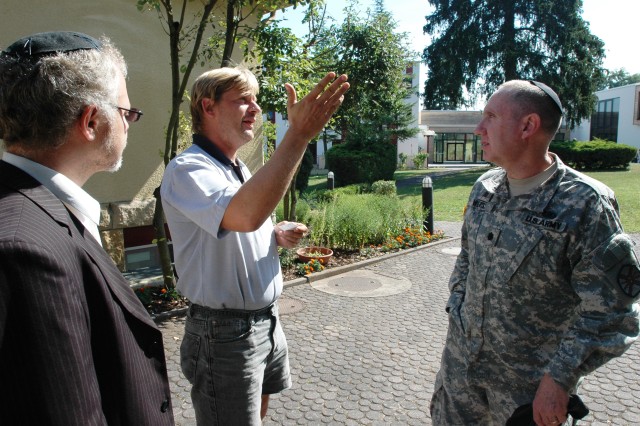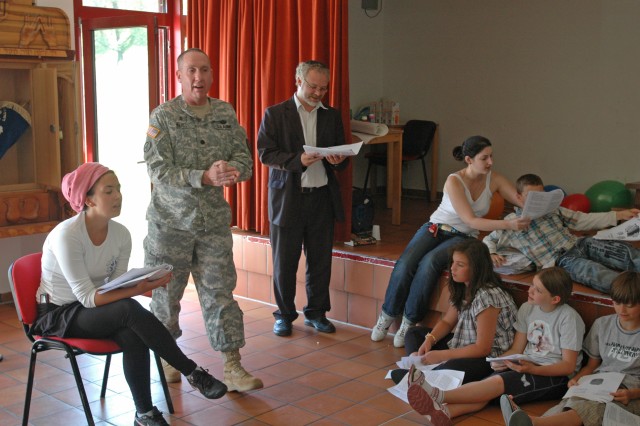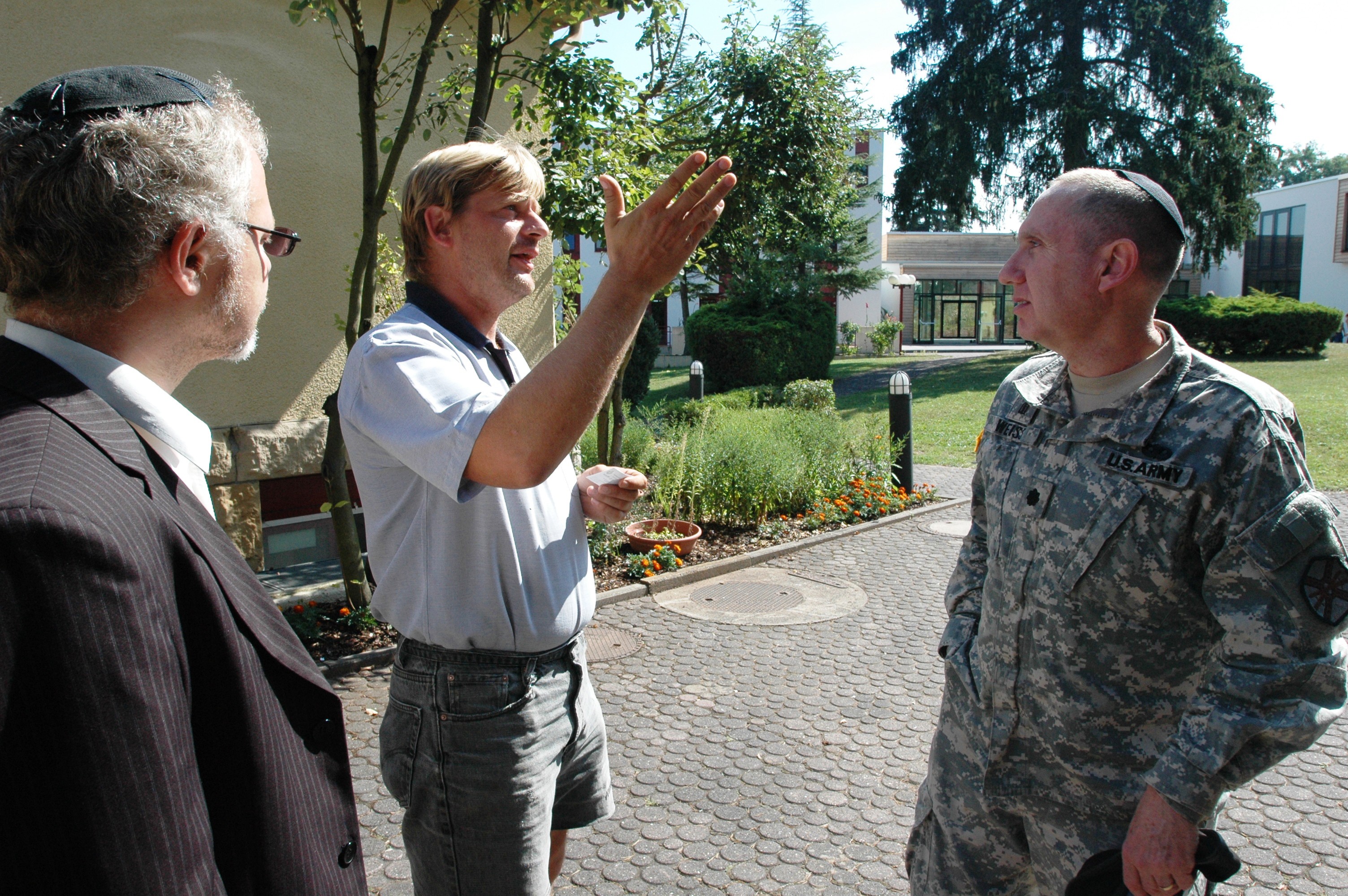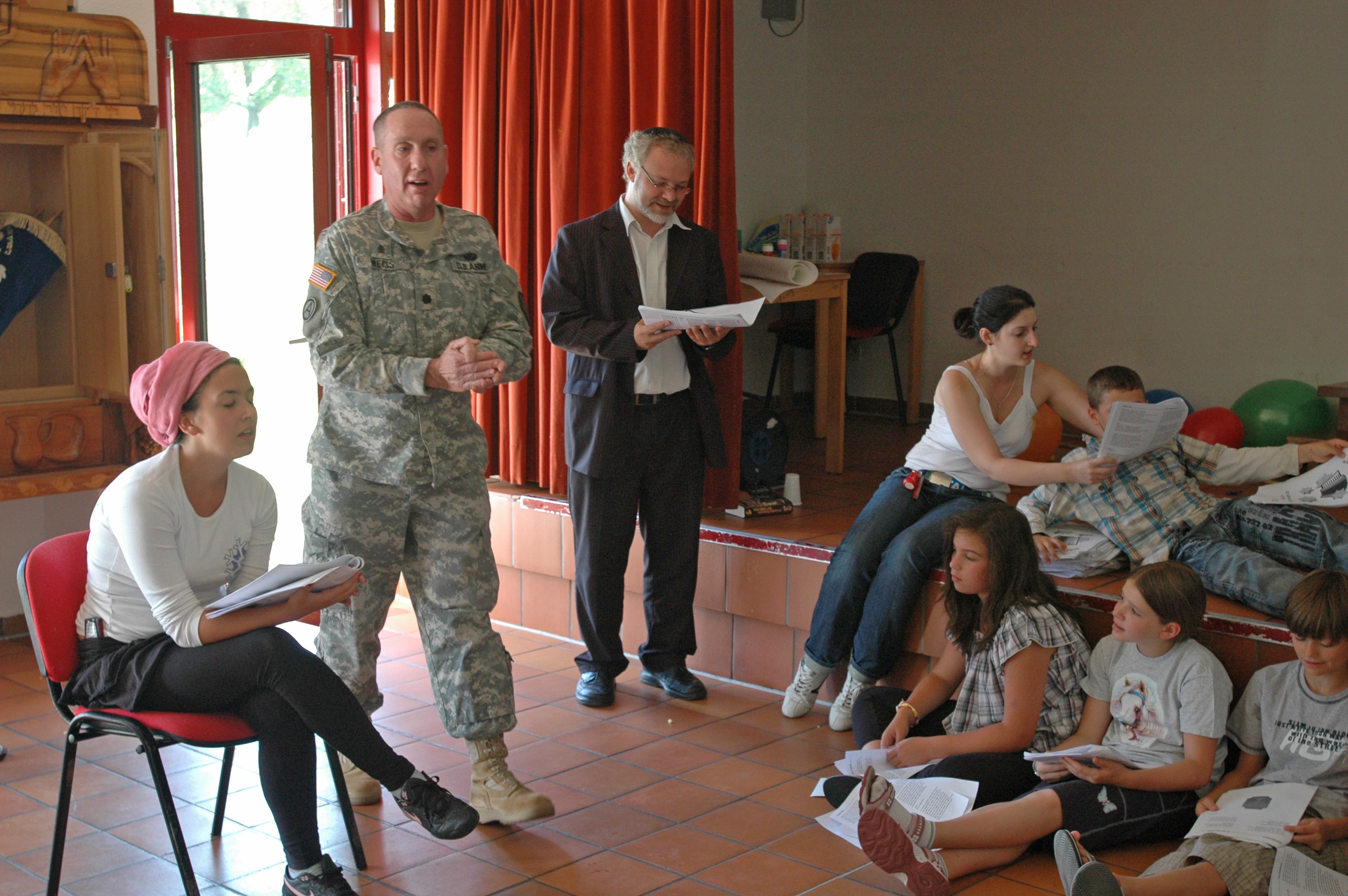HEIDELBERG, Germany -- He's the only Army rabbi in Europe, with a flock that's scattered all over the continent and follows a variety of religious traditions. Now he's organizing a retreat for the Jewish New Year next month, but you don't even have to be Jewish to attend.
Welcome to the world of Chaplain (Lt. Col.) Avi Weiss, deputy chaplain of U.S. Army Installation Management Command-Europe and its only Jewish chaplain.
Energy and constant motion are what strike a visitor to his office: Hopping on his E-mail, he forwards an inspirational message, then advises a chaplain in Korea who had been invited to a foreign embassy (don't go in uniform, inform your commander and security people). Then it's next door to discuss another chaplain's officer efficiency report. Then back in to make a couple of phone calls, followed by a pause for morning prayers, then more calls, and finally out the door to drive an hour and a half out to the site of the retreat for a recon and coordination meeting.
And the flow of words never stops.
"I'm a talker," said Weiss, who adds with a grin, "You probably noticed."
Wearing two hats -- deputy command chaplain of Installation Management Command-Europe and its only Jewish chaplain -- just means "I have to work more than 100 percent," Weiss said.
Like all chaplains, he serves Soldiers, civilians and family members of all faiths, but the wide variety of Jewish traditions among his faithful adds an extra level of complexity.
Weiss is personally "very traditional Orthodox," but many of the military members he serves are not.
For example, the traditional Orthodox have separate seating for men and women at services, but other denominations do not. Somehow he said he manages to square the circle most of the time.
"I must be inclusive," said Weiss, explaining that he must be true to the core tenets of the faith, but in such a way that nobody is offended or feels left out.
"I will never tell somebody they're not Jewish," he said firmly.
Weiss provides what he calls a "collective Jewish service," analogous to the collective Protestant services offered at many chapels.
"It's very challenging," said Weiss.
Weiss is on his second tour of active duty. Commissioned in 1974, he went on active duty in 1976 and served as a chaplain for 10 years. He then left active duty but stayed active in the Army Reserve.
"It was a hard decision," said Weiss, "But my wife (Elcya) and I wanted to raise our children in a Jewish environment."
That turned out to be in Israel, where their grown three children and seven grandchildren now live.
Facing an empty nest, and hearing the call to serve, he returned to active duty in 2002.
Where's home'
"It's Heidelberg," said Weiss.
He explained: "Some people live in the past, some live in the future, but I live in the moment. Wherever we're living, that's home."
Weiss said his next big event is a Rosh HaShanah retreat. Weiss calls his retreat for Rosh HaShanah, or Jewish New Year, a "unique" experience to build a sense of community in a religious body that is scattered all over Europe.
Weiss added that this would also be a chance for Jewish young people to meet others.
"We rabbis are match-makers," he chuckled.
This year, Rosh HaShanah is Sept. 19-20. According to the Hebrew calendar, a day begins after sunset of the preceding day, so it actually starts Friday evening, Sept.18. The program begins Friday afternoon, Sept. 18, and ends Sunday evening.
People may stay for both nights, just one night, or just attend the services.
The focus is on Jewish Americans associated with the military in Europe - active-duty military, civilian employees and their family members - but, space permitting, it is open to non-Jewish people who "wish to share the experience."
The retreat is free to military, family members, DoD civilians and regular attendees at military chapel services, but a donation of $10 per overnight stay and $10 per meal is suggested. Person not affiliated with the military may attend by paying Ac'A!120 per person directly to the organization which owns the retreat center.
The retreat will be held at the Max-Willner-Heim in Bad Sobernheim, a small spa town west of Bad Kreuznach. It is about equidistant from Baumholder, Kaiserslautern and Wiesbaden.
The center is owned by the Zentralwohlfahrtstelle der Juden in Deutschland (ZWST), or Central Jewish Welfare Organization of Germany.




Social Sharing